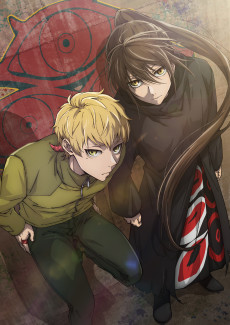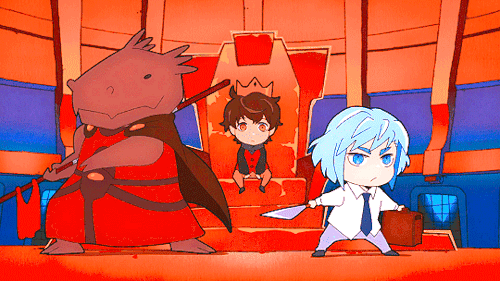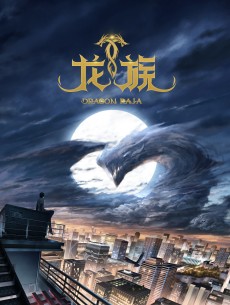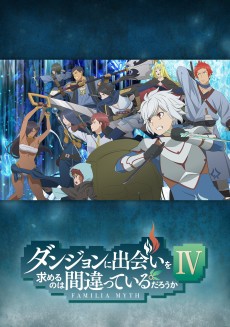KAMI NO TOU: TOWER OF GOD
STATUS
COMPLETE
EPISODES
13
RELEASE
June 25, 2020
LENGTH
25 min
DESCRIPTION
There is a tower that summons chosen people called "Regulars" with the promise of granting their deepest desires. Whether it be wealth, fame, authority, or something that surpasses them all—everything awaits those who reach the top.
Twenty-Fifth Bam is a boy who had only known a dark cave, a dirty cloth, and an unreachable light his entire life. So when a girl named Rachel came to him through the light, his entire world changed. Becoming close friends with Rachel, he learned various things about the outside world from her. But when Rachel says she must leave him to climb the Tower, his world shatters around him. Vowing to follow after her no matter what it takes, he sets his sight on the tower, and a miracle occurs.
Thus begins the journey of Bam, a young boy who was not chosen by the Tower but opened its gates by himself. They call his kind "Irregulars"—beings that have shaken the very foundation of the Tower each time they set foot inside it.
CAST
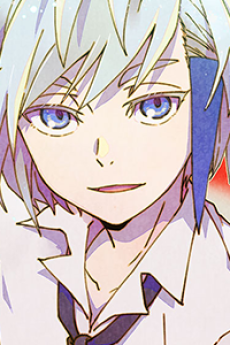
Aguero Agnis Khun
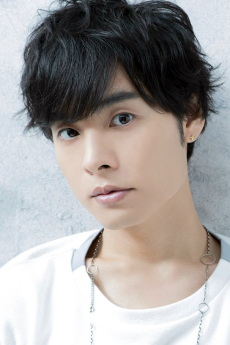
Nobuhiko Okamoto
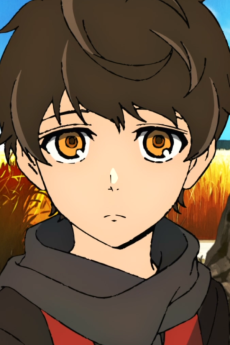
Twenty-Fifth Baam
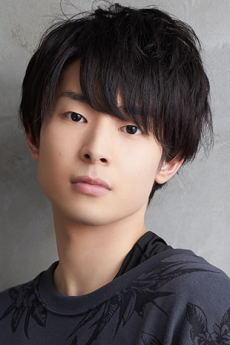
Taichi Ichikawa
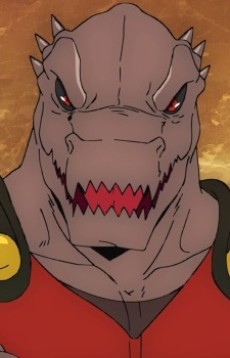
Rak Wraithraiser
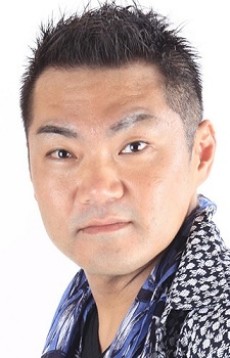
Kenta Miyake
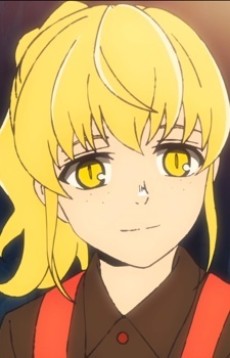
Rachel
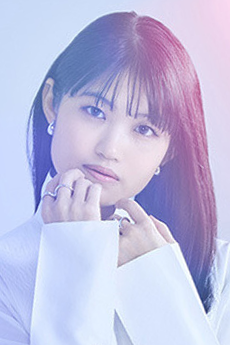
Saori Hayami
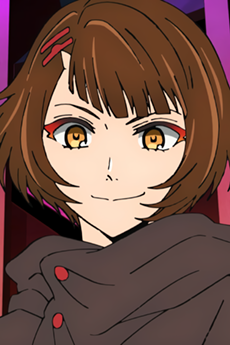
Endorsi Jahad
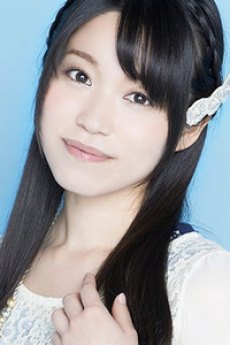
Rie Suegara
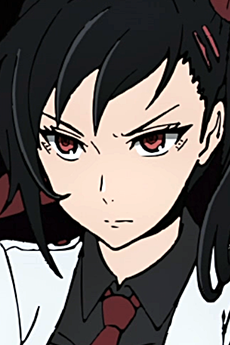
Yuri Ha Jahad
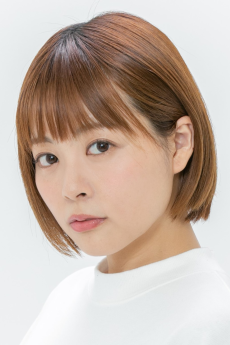
Mariko Honda
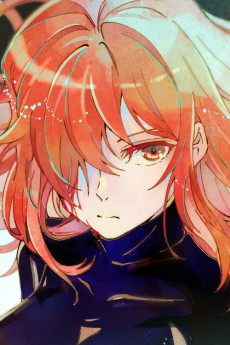
Hwaryun
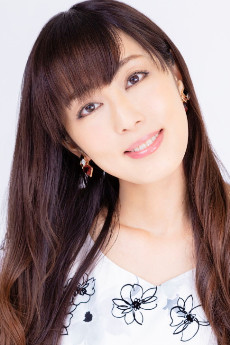
Youko Hikasa
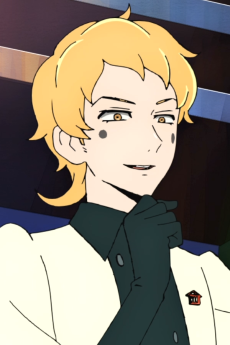
Lero-Ro
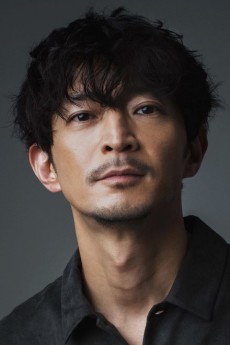
Kenjirou Tsuda
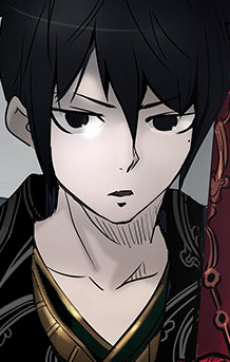
Hatz
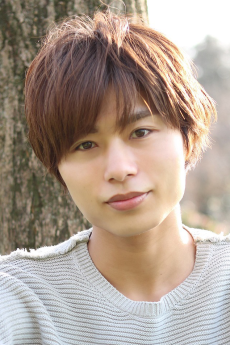
Toshinari Fukamachi
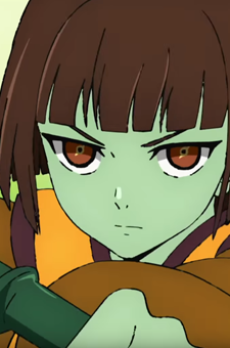
Anaak Jahad

Akira Sekine
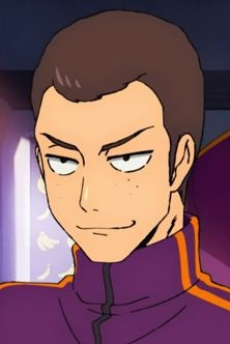
Shibisu
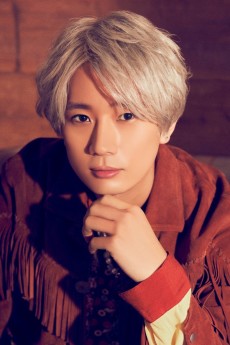
Takuya Eguchi
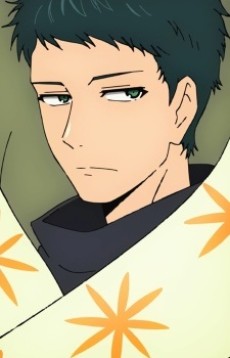
Lauroe Phonsekal
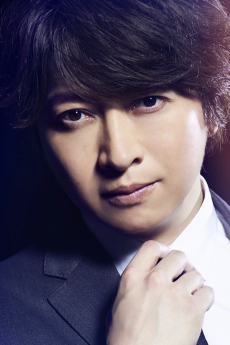
Daisuke Ono
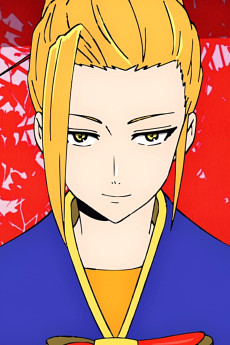
Yu Han Sung
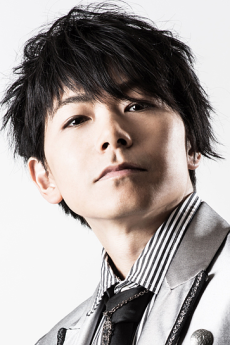
Daisuke Kishio
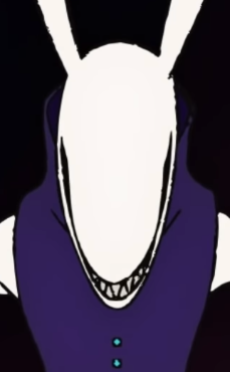
Headon
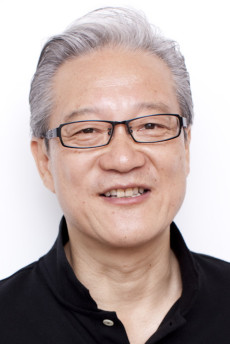
Houchuu Ootsuka
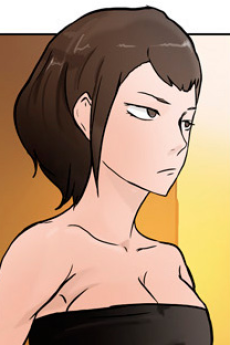
Serena Rinnen

Hitomi Nabatame
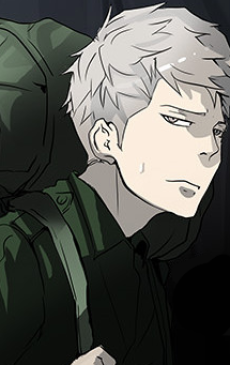
Evan Edrok
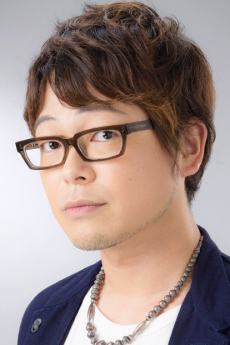
Kazuyuki Okitsu
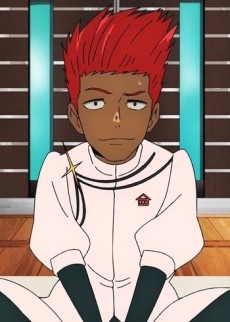
Quant Blitz
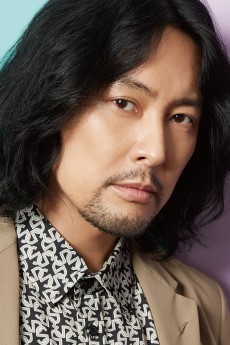
Hiroyuki Yoshino
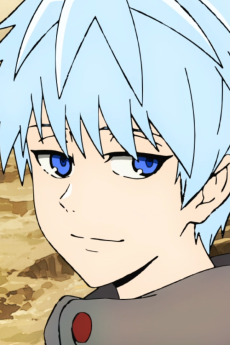
Hachuling Khun
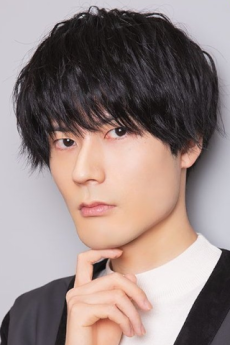
Kouki Uchiyama
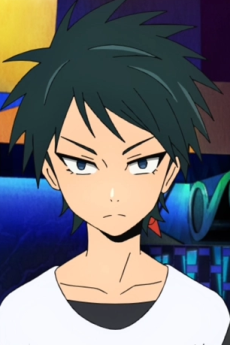
Dede Kancho
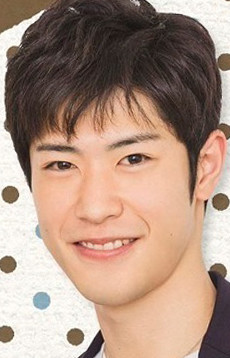
Takeo Ootsuka
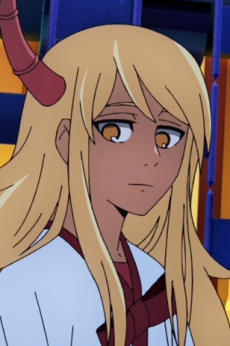
Hoh
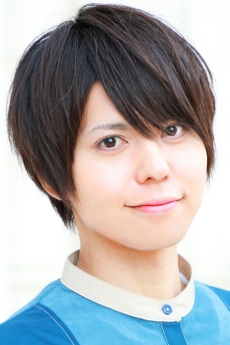
Fumiyoshi Shioya
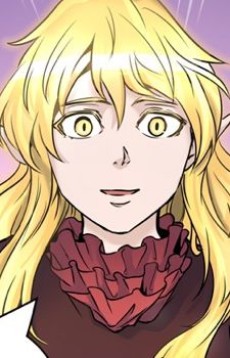
Geomeun Samwol

Shizuka Itou
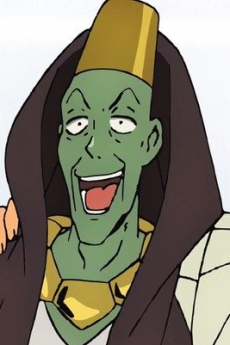
Parakewl

Kouichi Souma
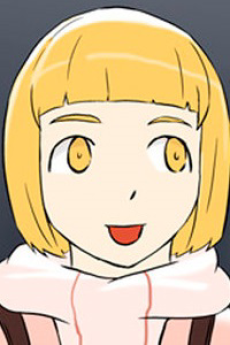
Sunwoo Nare
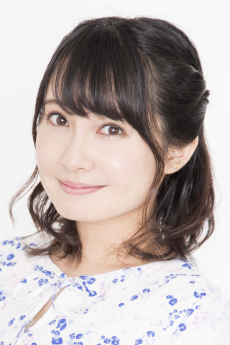
Chinami Hashimoto
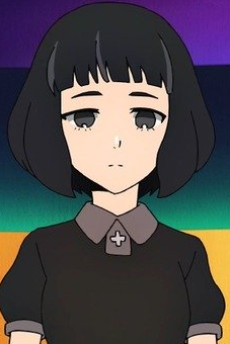
Grey
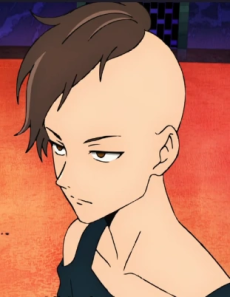
Blarouse
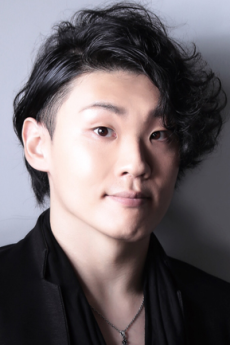
Reo Tatsumori
EPISODES
Dubbed
RELATED TO KAMI NO TOU: TOWER OF GOD
REVIEWS

AnimeDweeb
60/100The Realms of WebToons and Anime Collide.Continue on AniList
Start placing your bets, ‘cause Tower of God (ToG) could very well be the most important hallmark in our anime landscape this decade, although the 2020’s have only just begun. For those of you who don’t know, ToG is a Korean webcomic that got its start on WebToon, an accessible online platform that allows individual creators to share their works for free and cultivate consistent readership without interference from publishers. In 2019, Crunchyroll announced that they would be collaborating with WebToon to develop content from the website’s growing catalogue. ToG is the first product from that partnership, and with it comes a whole realm of possibilities. Not only is ToG arguably the biggest Korean IP to receive an anime adaptation, but it also marks the beginning of what could be a new era of anime. Thousands of stories from individual artists can now be brought to our attention further down the line in both webcomic and animated forms. Furthermore, ToG giving Webtoon more mainstream exposure will definitely encourage more people to contribute their stories with the world. ToG is undoubtedly a game-changer and the hype surrounding it has been astronomical. Popularity aside, however, one pressing question remains: Is the show any good? I haven’t seen SIU’s original comic and came into the show blind (apologies for being an anime-only normie). Alas, this will be a (mostly) spoiler-free, newcomer’s perspective on this show. Check out my Tl;Dr further below if you’re short on time. Now, let’s find out how well ToG measures up to the massive expectations on its shoulders.

“For what do you risk your life to climb the Tower?” For our protagonist Bam, his goal is to reunite with his close companion Rachel. With little explanation as to why she’s embarking on such a mysterious quest, Rachel leaves him, vanishing into the unknown. Suddenly, Bam is also offered the chance to enter the titular Tower and take part in series of trials, with the promise of incredible power should he make it to the very top. He agrees and sets off to reunite with Rachel, not knowing what lies ahead on his journey. As the story progresses, he is pit against various competitors who are all vying for the prize at the top of the Tower. These individuals, known as Regulars, grew up in a society governed by the rules of the Tower; some have dedicated their entire lives to successfully completing this arduous challenge. While the many tests are conducted, the show shines light on how these characters’ lives have been hardened and conditioned to outlast the competition, showcasing their upbringing and circumstances surrounding their inclusion in the games. Expect some high-octane action and plenty of big-brain strategical plays at every turn, as the obstacles are specially designed to put our cast’s might and intellect to the ultimate test.

Right out of the gate, ToG gets plenty of things right in its freshman season. In my opinion the one aspect ToG absolutely nails is its soundtrack, my GOD it’s amazing! Kevin Penkin brings his A-game to the show, with several bangers that ratchet the tension up to 11. The soundtrack has everything, from choral arrangements reminiscent of his work in Made in Abyss to tense, electronic beats. I’m no music expert but I really can’t help but gush over how exceptional this soundtrack is; it absolutely elevates the show’s big moments and is easily my favorite offering from the show. That’s not to say that ToG doesn’t have anything else worth praising, far from it!
The world introduced is fascinating and makes you feel like the show’s 13 episodes are merely scratching the surface. We see this realm through the eyes of the Regulars, with glimpses into their lives before they stepped in the Tower. We’re constantly teased the backstories of these characters, learn how they came into the game, and see how their past experiences manifest themselves in their beliefs and actions. We as the audience never step outside the confines of the Tower and thus can only grasp the concept of the surrounding environment through the lens of the Regulars. The plot sometimes necessitates clunky exposition to breeze through material, but for the most part I like this approach to worldbuilding here. Seeing the world the way the Regulars do endears us to them while keeping the outside world shrouded in mystery. The many cast members also keep the games feeling fresh, as their various strategies and incredibly powerful abilities come into play. It seems like the author was aware that these competitors were a vital component to the story’s success, as the tests introduced are written to complement them. What I mean is that some of the more exciting games grant the competitors plenty of room to figure out their own solutions.
This high power balance, coupled with the cast’s out-of-the-box approach to problem solving, gives each test an unpredictable momentum and keeps the experience enjoyable from week-to-week. Now although ToG has plenty of things going right for it, there are a few issues that I’d like to bring to light here. Granted, these shortcomings may be attributed to either the short series length or SIU’s relative inexperience as a writer when these initial chapters were released. I figured these circumstances could affect the overall experience and tempered my expectations accordingly going into the series. I want to preface this section by letting you know that I’m not sure whether or not my preconceptions are accurate or if the following criticisms apply to the rest of the webcomic. I am simply sharing my takeaways based solely on the anime, so make of this what you will. With that, let’s begin.
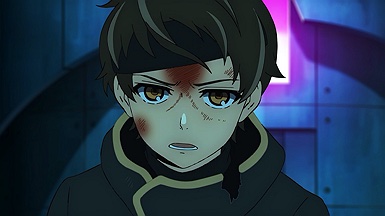
As mentioned prior, one of the strengths of the show lies in its cast. Khun, Endorsi, Anak, Shibisu, and Rak are bound to be fan-favorites; and other Regulars have strong moments as well.
Unfortunately I can’t say the same of our Irregulars, Bam and Rachel, at least in this stage of the story. There’s no easy way to say this, but Bam is a paper-thin audience surrogate and the worst element in ToG. The world of the Tower is just as alien to us as it is to Bam, so it makes sense that he is the focal point of our story. However, when lined up against his peers Bam feels underwritten, with every fiber of his being seemingly built solely around Rachel (That’s a WHOLE other story, check it out in the spoiler-filled “Stray Ramblings” section^). He represents a couple of problems in the narrative and is typically framed in contrast to his Regular counterparts to balance things out, for better or for worse. You like interesting and charismatic characters that actually get involved in the games? Bam’s bland and mostly just sits back while the others participate in the challenges. Throughout the series I never learn a single thing about Bam that isn’t related to his friends or Rachel; he’s a blank slate in every sense of the word. What annoys me the most however, is how OP he can get. Due to the competitive nature of our story and the need for our main character to, y’know, survive; he’s a magnet for plot contrivances and is constantly buffed with little explanation. Rey Skywalker may be the new Mary Sue, but Bam looks set to take over her throne soon. He may have been completely unfamiliar with the magic systems in place, yet his power scaling is borderline ridiculous and puts other Regulars to shame. With his bland personality and effortless wandering through the narrative, ToG gives me a hard time rooting for its lead. With all that being said, the later arcs do attempt to course-correct by giving him a little more agency within the narrative. Further addressing this problem in future instalments by adding more personal conflict and developing his character growth would go a long way to justifying why us fans should cheer Bam on.

Another aspect that could use some fixing is the writing, as it’s pretty inconsistent at times. ToG does take time to slow down and set up some really clever sequences, but occasionally expects the audience to accept certain moments happening without adequate explanation. In one instance the show very nearly conveys the WRONG information^^, which I only realised after a manhwa reader pointed it out. The tests are also worth bringing up, as most of them feel rather inconsequential. A couple of these games amount to rudimentary tasks (which is made all the more boring ‘cause Bam is OP), and only exist for the show to provide exposition. Meanwhile, two of the show’s biggest arcs end on slightly-sour notes, making the incredible build-up behind it fall a little flat. My guess as to why these writing problems persist is that 13 episodes just weren’t a whole lot for the show to work with. ToG manages its pacing well but cuts a few corners so that all the big story moments to land. Speaking of large moments I think it’s time to talk about the art and animation, and how they factor into the show’s setpieces.
ToG looks really rough around the edges, to the disappointment of the comic’s fans. I’m not the one to tell you whether or not it was a deliberate artistic direction, but ToG has a tough time meeting art standards set by other anime in recent years. Personally I don’t think it’s too much of an issue, but if your mind is still reeling from the "sakuga" in Demon Slayer you’ll want to take note of this. ToG’s action sequences still feel fresh thanks to that fantastic score, and director Takashi Sano does the best with what he’s given with some good shot compostition^^^. I certainly can’t fault the show for trying to polish its presentation, but there is room for improvement.
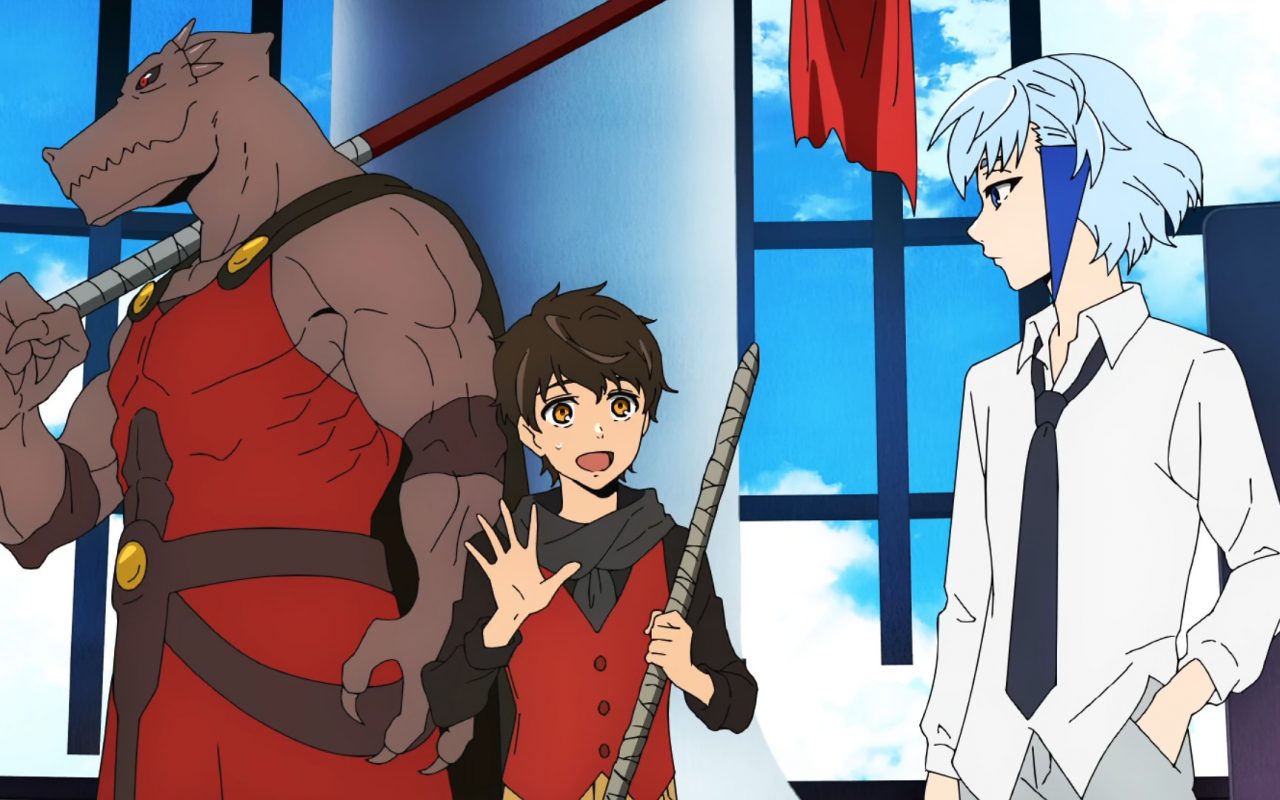
Tl;Dr: Tower of God has the makings of something truly special. ToG has given me several reasons to stay invested long-term, delivering a strong cast of characters and countless creative ideas alongside its solid premise. A masterful soundtrack by Kevin Penkin enhances the experience and is a stellar highlight. At its peak, ToG brings out some of tensest action setpieces all season. However, this show looks like one still finding its feet; a disappointing main protagonist, inconsistent writing, and subpar art present issues that need resolving ASAP. ToG’s short episode length also needs to be taken in account, because a lot of relevant material seems to have been left on the cutting floor as a result. Compared to its webcomic counterpart, I can only wonder whether or not this story got the adaptation it deserved. But from I’ve seen so far, this show is glowing with promise and I’m intrigued to find out what new tales might come our way in the near future. 6/10~
STRAY RAMBLINGS (SPOILERS): -
^Rachel is a big problem. I couldn’t find a way of working her into the main review without spoiling anything, as I wanted to avoid revealing that she shows up in later episodes. This pair of Irregulars are irritating as heck. Much like Bam, Rachel is severely underdeveloped and ticks me off in every scene she’s in. She’s fridged for a good chunk of the narrative, only serving as a damsel in distress who gives Bam something meaningful to do in the tests. Her motivations are always annoying to interpret and she never really opens up on her shared past with Bam, ensuring that I couldn’t care less about the bond that got Bam taking the tests in the first place. Both of our Irregulars create dissonance between themselves and the audience, with Bam’s passivity and Rachel’s distant façade. The one time I appreciated her character was for indirectly calling out Bam on his BS by telling him how clingy he’s been, which is something I do NOT want to be complimenting! Granted, the show finally tries to justify her stubborn desire to “see the stars” in the season finale, but I would be a lot more forgiving about our leads if Rachel did just a little to justify the great deal of respect that Bam has for her. I’m plenty impressed with SIU and the cast of Regulars he’s put together, but I’m puzzled as to why these two vital pieces don't get the same treatment.
-
^^Okay, so I don’t know if I’m just too stupid to keep up with the plot or not, but something weird happened while I was watching Episode 10. Several of my friends came out just as confused by this as I was, so here’s hoping that I’m not alone in missing out this key detail. Early in the episode we get a quick flashback sequence from Khun’s perspective, delving into his suspicions on Hoh. This rapid-fire plot dump seemed to have made Khun out to be the culprit who planted the note in Hoh’s quarters. To my surprise I later learnt that Khun actually copied the note with his bag and left the real one where he found it. The reason why this misunderstanding occurred in the first place is because this flashback was only given one minute to present all that exposition! While writing this I revisited the episode to see what I didn't catch. I counted 2 cuts. 2! Missing that was all it took for me to misinterpret the scene entirely, especially when Khun later goes on to claim, “My strategy was perfect.” An extremely unfortunate coincidence that wasn’t helped by the density of the plot and the inadequate series length. Probably the most damning indicator that this series deserved more than the single cour it got.
-
^^^Seen some hate-filled comments aimed at Takashi Sano that I don’t think is warranted at all. He’s an experienced staff member with credentials in storyboarding and key animation. His roles in Megalo Box and Vinland Saga demonstrate the importance of his talents in visual storytelling. You still see creative and impactful flourishes throughout the show, although the poor production values can’t deliver those scenes at their fullest potential. As for the many “unnecessary” changes made to the original story, studio execs in charge of the anime likely forced him to adapt way too many chapters in a short span of time, while throwing in some other nonsense they thought us zoomers would like. The poor guy’s hands were tied, and I seriously doubt that he ever intended to derail the project. Please don’t send hate his way.
-
The VA cast sound distinct and are mostly great. I actually think the dub is worth checking out, mostly for the sweet reprieve of not hearing Japanese Bam’s tiresome voice on a weekly basis. I won’t go as far as to say that Sayori Hayami phones in her performance, but she doesn’t get a lot to work with. All is forgiven though, ‘cause we get Takuya Eguchi as Shibisu. It’s nice to hear Hachiman’s voice this season, especially after Oregairu got postponed :’)
-
Hats off to Stray Kids for recording the songs for the OP & ED in three languages: Japanese, English, and their native Korean! I am glad to report that all three iterations of “TOP” are certified bangers. Stray Kids, I think what you guys did was really cool and pray a kind soul finds y’all a loving home soon.
-
To heck with the 13 Month Series, Khun’s briefcase is the most broken weapon that we’ve seen so far. It’s such an interesting take on a Bag of Holding, the trope where a bag is implausibly larger on the inside than what it should be. Seeing the briefcase make countless copies of objects and even spawn an entire team of Regulars fits Khun’s conniving nature to a tee. I hope they never explain away how the damn thing works, it’s way too fun!
-
Hmm, foreshadowing for the Crown Game was a tad too on-the-nose here:
-
BEST GIRL: Endorsi Jahad, Princess of Jahad, is my Queen. We have a close runner-up in Lauroe, for being me and everyone else during Covid lockdown – encased in a blanket 24/7.

-
WORST GIRL: Rachel. As a woke Nayvadius “Future” Wilburn once said:

-
Lockdown does weird things to people, so I guess I blog now! Thanks so much for making it this far. If you happen to like my verbose over-analysis, come check out the other reviews I’m putting out this season. Also, feel free to leave any feedback for me; I’m still trying to figure a lot of this stuff out. Stay safe, see you in the next one, peace!

-

planetJane
86/100"He who climbs upon the highest mountains laughs at all tragedies, real or imaginary."Continue on AniList*All of my reviews contain __spoilers __for the reviewed material. This is your only warning.*
Tower of God is a fascinating series, and that would be true even if we looked solely at where it comes from. Tower of God is an anime adaptation of a South Korean webcomic. The first of many, I would venture to guess. (Indeed, if you’re reading this as it goes up, the similarly-titled but unrelated God of High School premieres in only a week or two.) But while Tower of God’s multinational pedigree is certainly fascinating, and does inform some of its sensibilities, it would be a mistake to preoccupy ourselves with solely this aspect. So let’s take a step back.

Tower of God is the story of Bam, in many ways the very image of an archetypal shonen hero. Friendly, naturally gifted, determined, honest. Ah, and singularly devoted to a girl, who he begins his quest to scale the Tower in search of.
Tower of God is also the story of Rachel, who is that girl. Rachel is Bam’s opposite and his shadow, though that does not become clear until the series’ closing episodes.
There are a few ways to analyze Tower of God. Purely as an action series, what’s presented here is well above the merely competent. ToG has an interesting, clean visual style that sets it apart from most of its peers. Its plot is a pleasing mix of adrenaline-pumping fights and twisty political intrigue. The cast is colorful, both in personality and often literally, as the series’ origins as a webcomic really shine through in many of the “fuck it, it looks cool” designs of certain characters, such as the inexplicable number of ribbons that Yuri Jahad uses to tie her hair, a one-off character who is a living pink punch dummy, Anaak, a charming green lizard girl with a bobcut, and Rak, one of Bam’s main companions, who is a spear-wielding alligator-man. Even more “sensible” designs, such as those of Khun and Endorsi, make eye-catching, pleasing color choices.

In terms of actual characterization, they’re great. This is true when they’re working in surprisingly subtle, nuanced shades, say with Aguero Khun or Yu Han Sung, who operate as the series’ obligatory plan-spinners, or the intertwining histories of Anaak and Endorsi, or, indeed, Rachel. It’s equally so when dealing with broader, archetypal characters, such as Rak or for that matter, Bam himself. Nearly to a one, every character is a joy to watch work, even if it’s in a “love to hate” sense as with some of the villains.
The other point though is that Tower of God’s titular structure is a metaphor the size of a million skyscrapers. What for? Well, any system you care to name that pits its competitors against each other in a zero-sum game, and there are many of those. It maps most closely, in my estimation, to capitalism. Both with the foregrounding of the “haves vs. have-nots” dichotomy when Hoh betrays his team during the “tag game” arc, and the subsequent inequality and cycle of suffering that dichotomy perpetuates. Some of our characters are empowered by it: indeed, this is Bam’s role, someone deposited by fate and circumstance into a system which rewards his skill set and natural talents (making allies and shinsu manipulation, respectively). Others are much less lucky. Hoh, a blonde, horned character, is the clearest example. We never get the gory details of what, exactly, happened to his homeland, but the scattered nightmare flashbacks we get speak to the trauma on its own. In this light his betrayal makes perfect sense. Who wouldn’t do anything they could to come out on top of a system this vicious?

This appears to be what drives Rachel, too, whose arc is a more subtle, larger-scale reflection of Hoh’s (perhaps that’s why they’re both blonde). We never learn why she’s so obsessed with “becoming a star” and “being special” (as Headon, the rabbit-like ‘guardian of the Tower’, puts it), but her deep-seated envy drives the final episode of the season. It would be easy to write her off as simply a bad person (and hell, maybe she is), but Tower of God seems to resist such simple readings.

There’s also, to return to the “Tag” arc, Selena, who literally exits the series at its 2/3rds marker, plainly in the Tower because she is the only survivor of a band of criminals. It’s only when the system grinds her will to fight down that she willingly leaves. She isn’t dead, and in that sense her fate is better than Hoh’s, but both have given up the fight.
But Tower of God also touches on other forms of inequality. Khun’s apparent exile from his family seems to have been caused by either a violation of some sort of social taboo (it’s broadly implied his relationship with his sister may have been incestuous) or a frame-up to resemble one. This is certainly a very different sort of inequality than the systematic oppression wrought by having or not having shinsu affinity, but it feels an interesting stab at applicability nonetheless. Our own world is certainly no stranger to ostracization on these grounds. It’s not nearly as fully-realized a metaphor as the show’s primary storytelling mechanism, but it’s interesting food for thought nonetheless.

There is even incremental touching on of misogyny. We learn very little concrete about the King of Jahad, but his policy that his “princesses” cannot have sex or reproduce certainly feels like commentary. Again, it’s not followed through-upon with the same strength as the story’s central metaphor, but it's meaningful that the show even deigns to go there.
Of course, no anime is perfect. Tower of God’s thoughtfulness in some areas only makes it more obvious when it’s deficient in these same regards. No dark-skinned characters play a major role, which would perhaps be less egregious if the only one who comes close, Hoh, wasn’t the only named character to die on-screen. Elsewhere, Rachel being disabled and one of the show’s more outright villainous characters feeds into the ancient “evil cripple” stereotype that fiction in general, really, should be well past by now. Some scenes in the finale also imply that she’s faking it, which is not any better.
On the narrative side, the simple realities of cutting even a given length of a sprawling webcomic into thirteen 22-minute episodes means things are occasionally a bit confusing. The Tower’s mechanisms being obscure and obtuse usually works in the show’s favor--it really only adds to the central metaphor--but it sometimes gets in the way of the show’s literal plot. The “Tag” arc is the big offender here, while the emotional beats are great, the actual logic that the tag game works on is rather confusing.
Tower of God thus can certainly feel like the long prologue to a story we’re only going to get in full from the second season (which, one seems likely) onward. I would hasten to ask, though, is that a bad thing? All of the above is tied together with an excellently-executed action shonen setup that is rarely less than a good time. Its flaws may mark room for improvement, but on both a pure craft level and intellectually, the series excels overall.
In general, Tower of God stands as one of the strongest entries in the already-strong Spring 2020 anime season. That’s to be respected, and celebrated. Tower of God ends on an ambiguous note, Bam washed down, seemingly back to the bottom of the Tower. A still, mysterious shot of a lone figure closes the series. The cliffhangers feel pointed, a promise that Tower of God is nowhere near finished telling its story. For that, we can be hopeful.

And if you liked this review, why not check out some of my others here on Anilist?

CaninnTurtle
63/100Tower of God, ruined potential, and what makes an adaptation good.Continue on AniListAnyone who's followed me for the last six or seven months knows that I've grown to be a massive Tower of God fanboy. Discovering that an anime was on its way soon after I got sucked into the world and characters of Tower of God got me extremely excited to see this masterpiece of an story get the attention it deserved. When the first trailer dropped, I somehow got even more excited than I already was. Here was a trailer that captured the artstyle of the webtoon perfectly and made some changes that I thought were certainly on the right track, like Khun's hair, for example. The music was on point too, capturing the mysterious and intriguing vibe that the Tower emanated. Then, it started airing. Now, I should point out that, objectively, pushing my webtoon bias to the side, I think Tower of God is an alright anime. Not really good or great, probably a boring, but a run-of-the-mill anime. I'll go into more detail as to why I'm not very impressed with the quality of the anime even without my biases later on, but then you add in my knowledge of the source material and here's where my feelings about this adaptation get much more complicated. I will dive into spoiler territory beyond the Favorite Character section, as usual.
Like I said earlier, Tower of God captured the aesthetic of the webtoon extraordinarily well. The watercolor aesthetic is pleasing and unique, though I have to say that I wish they had toned down the brightness a little. It makes it seem a little too lighthearted in my opinion, but that's something that I'll admit is down to personal preference more than anything. The animation quality wasn't extremely impressive, especially in the battle sequences. They all seemed so generic and underwhelmingly choreographed. It certainly would have been foolish to expect ufotable level quality from Telecom but it still feels like a bit of a letdown on that front. I loved the changes that they made with some of the character designs, namely Khun, who looks so much better from his webtoon version in season 1. The fluffy hair was definitely a good touch.

Switching to the audio design, Tower of God gets a solid pass from me. On a soundtrack level, Kevin Penkin always slaps, although I think this is definitely one of his weaker soundtracks. It doesn't have many memorable tracks outside of maybe some of the numbers in episode 1, that come to mind, but again, that's something that is relatively subjective. Stray Kids absolutely kills it with their performances of "TOP" and "SLUMP" as the opening and ending songs respectively. "SLUMP" may actually be one of the best endings I've ever heard, though the competition for that title is tough, to say the least. Outside of the music, the sound design was otherwise just meh. I thought it was really underwhelming for shinsoo and certain other moments that felt as if they should have packed a little more of a punch.
Favorite Character: Endorsi Jahad

This is where my disappointment in the anime begins in full force. Starting with Endorsi's anime portrayal. This is my favorite character in Tower of God and that's saying a lot because I love so many of these characters very strongly. Firstly and most obviously, the anime removes her relationship with Bam in its entirety. In the webtoon, Bam is instrumental in her growth from a selfish Princess who only needs herself to someone who trusts her friends and doesn't look down (as much) on those who are weaker than her. They share a lot of experiences and dialogue in season 1 of the webtoon, even to the point of her developing a crush on him and telling him that they are going on a date after the final test. Then we look at the anime version of their relationship and we wonder if they even acknowledge each other's existence. They share what, one conversation? And even in that conversation, Hatz is in the room and he steals the conversation and has a shipping moment? It's so disappointing to see the removal of such a key aspect of Endorsi's character and development. Even greater than that, a huge aspect of her motivation in season 2 makes way less sense because of these completely unforced changes to her character.
I wish it was just limited to Endorsi's character, but Khun gets much of the same treatment in the anime for seemingly no reason. His backstory gets changed, on top of a lot of his personality. It's sad to see, because he's definitely still the Khun we know and love from the webtoon, but he feels like a lite version of that character due to the 'redeeming qualities' the anime seemed to force upon him. In the webtoon, we never really are sure why he's doing what he's doing and if its for himself or his friends. There's a lot of deviousness and ambiguity in Khun's character that simply gets lost in the translation between webtoon and anime. It feels pointless because of the way that they weaken his character and make him feel far less deep and believable.
I could go on about the characters and why they feel like somewhat cheap imitations compared to the source, but I had better move on. The next big disappointment for me was in the anime's overlooking of important details and subtle foreshadowing. There are far too many instances of this happening, so I'll just point out the first one that always pops into my mind whenever I start thinking about this specifically. In the first episode of the anime, we're introduced to Yuri long before she actually kicks Bam in the face. During this whole sequence, they're laying the groundwork for a lot of the early plot of the series and dropping some really important names in the process, like Urek Mazino and Phantaminum. While this flies over the head of first time viewers, its such a good bit of foreshadowing for later and introduces the strangeness of an irregular and shows you how insanely rare they are. The anime has none of this. Yuri just jumps in unexplained and gives Bam the Black March. For an anime viewer, why was she even there? For this random loser? So many moments that are weakened or simply unexplained that cause a domino effect throughout the series and weaken moments later and later because the anime is either having to play catch up or find a new way to make a moment make sense without the groundwork being properly laid.
Obviously, I can only scratch the surface with so many of these issues that occur time and time again in Tower of God's anime adaptation. There's still so much more that I could explore, but you get the idea. I feel like a valid question to ask here would be: What makes an adaptation good? Is it in the complete and totally faithful retelling of the original work? The proper retelling of the story? Making changes to more properly tell the story and explore different characterization? I think the answer lies somewhere in a mix of all of those. If we look back through history at some of the best adaptations in anime, we can look at works like Attack on Titan or March Comes in Like a Lion who faithfully adapt the series for the most part. The key is understanding what can be trimmed from adapting the work and what needs to be added. Obviously, there were moments that the anime version of Tower of God would have had to trim from the runtime, but we didn't need to use that extra time on Rak eating candy bars (Why are they not Bananas?!?). I think a lot of it comes down to directing passion. Toward the end of production, the assistant director took over and the quality took a massive upturn in both faithfulness and overall quality. It makes me kind of sad seeing the quality get so much better in the latter three episodes or so because it makes me wish that the other ten could have been as good.
Clearly, thirteen episodes is too little to adapt such a dense work as Tower of God, but its doable. A lot of these factors soften my opinion on the adaptation somewhat. Time constraints are no joke and this is an anime that could have used fifteen episodes just to pack in those details that would have elevated this season to a much higher quality. Will I be watching a season 2? Probably. I simply love this world and these characters too much and the last few episodes definitely gave me a little hope that season 2 can capture the hype better. As it stand though, season 1 was a massive disappointment to me not only as a source material reader, but also someone who likes good anime. It just doesn't manage to make itself very interesting even to me who has the passion for the material, so I can't imagine how boring and uninteresting it may have been to some others. I'd like to take this moment to apologize if any readers feel as if I'm leveraging an elitist attitude for having read the webtoon beforehand, but I hope you understand that its simply passion for one of my favorite works of art ever. I hope that the anime (and this review, hopefully) at least pushed many new people to read the webtoon for themselves and experience the absolutely phenomenal world and gripping story that SIU has crafted so masterfully.
SIMILAR ANIMES YOU MAY LIKE
 ANIME ActionHUNTER×HUNTER (2011)
ANIME ActionHUNTER×HUNTER (2011) ANIME AdventureMade in Abyss
ANIME AdventureMade in Abyss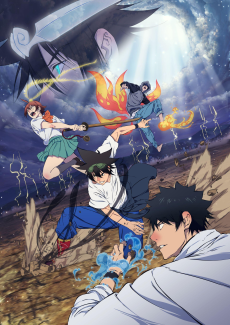 ANIME ActionTHE GOD OF HIGH SCHOOL
ANIME ActionTHE GOD OF HIGH SCHOOL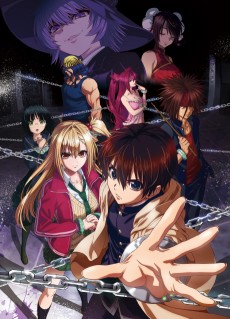 ANIME ActionDeatte 5-byou de Battle
ANIME ActionDeatte 5-byou de Battle MOVIE ActionShin Angyo Onshi
MOVIE ActionShin Angyo Onshi
SCORE
- (3.7/5)
TRAILER
MORE INFO
Ended inJune 25, 2020
Main Studio Telecom Animation Film
Trending Level 2
Favorited by 6,423 Users
Hashtag #TOG #神之塔



